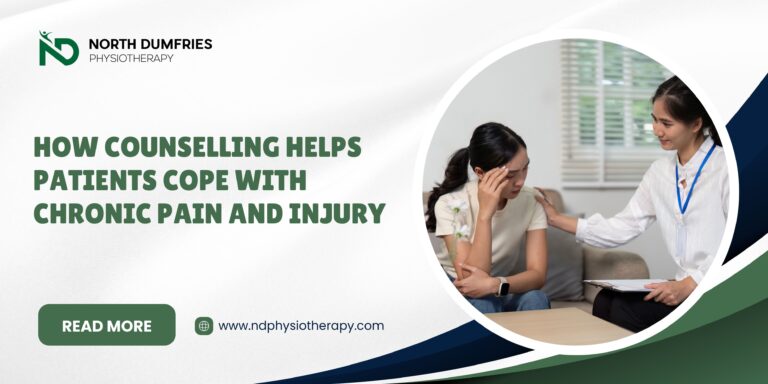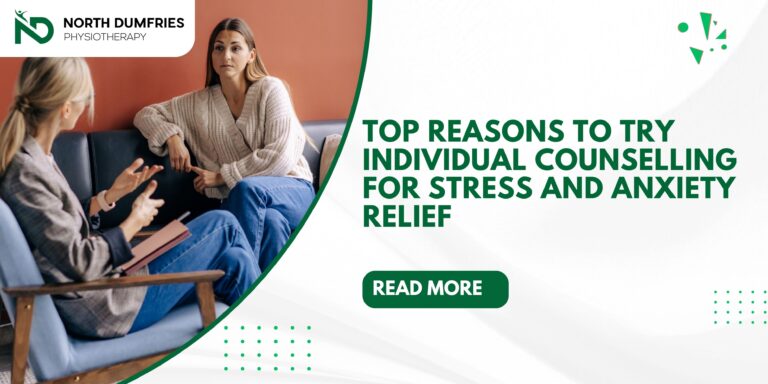Individual counselling can help when emotional challenges begin to interfere with daily life. It provides a safe and confidential space to discuss feelings, understand struggles, and build healthier handling strategies. People benefit from counselling when they feel stuck, overwhelmed, or unable to manage stress on their own. It supports both short-term relief and long-term personal growth.
Emotional happiness is just as important as physical health, yet many people hesitate to seek professional support. According to the World Health Organization, 1 in 8 people worldwide live with a mental disorder, with anxiety and depression being the most common. While occasional stress and sadness are part of life, ongoing difficulties may point to deeper concerns that require guidance. Counselling offers a supportive, non-judgemental approach that helps individuals regain balance and move forward with confidence. In the following sections, we will address five key signs that suggest it might be time to consider individual counselling benefits.
1. When Emotional Numbness Replaces Everyday Joy
It’s natural to feel sad or stressed at times, but if joy consistently feels out of reach, then it could be a sign of something deeper. Emotional numbness is when activities, people, or hobbies that once brought happiness now feel flat or meaningless. This lack of connection can be as upsetting as sadness itself.
Globally, depression affects about 5.7% of adults and is one of the leading causes of disability. Treatment for anxiety helps by uncovering the root causes of emotional detachment and building healthy coping strategies. Over time, it supports reconnection with daily life, relationships, and the sense of pleasure that may feel lost.
2. Recurring Negative Thoughts & Inner Criticism
Everyone has moments of self-doubt, but constant negative self-talk like “I’m not good enough” or “I always fail” can wear down confidence. Even when life looks fine from the outside, this inner critic can create cycles of nervousness and low mood.
Anxiety disorders affect around 4.4% of the global population, more than 350 million people. These patterns of negative thinking can hold individuals back from opportunities and prevent them from enjoying achievements. Mental health counselling provides tools to challenge unhelpful beliefs, break repetitive thought loops, and build self-esteem. Over time, individuals learn to replace constant criticism with balanced and compassionate self-talk.
3. When Stress Shows Up in Your Body
Mental health struggles don’t always show up as emotions; they often appear in the body. Stress can lead to fatigue, frequent headaches, muscle tension, poor sleep, or digestive problems that don’t have an obvious medical cause.
Research shows that nearly one in three adults experience symptoms of panic or loneliness at some point, many of which are expressed through physical discomfort. For example, chronic stress can raise cortisol levels, which disrupts sleep and weakens immunity.
Stress-related physical therapy can help ease this cycle. Psychotherapy addresses the triggers behind these physical symptoms. Together, they reduce both stress and pain.
4. Difficulty Coping with Life Transitions or Trauma
Life is full of change, and while some transitions are exciting, others can feel overwhelming. Divorce, the loss of a loved one, serious illness, or job changes can create emotional tension that stays far longer than expected. Even positive changes can be stressful, such as moving to a new city or becoming a parent.
During the COVID-19 pandemic, the WHO reported a 26% increase in anxiety disorders and a 28% increase in depression cases worldwide. This highlights how major life events can significantly affect mental health.
Counselling for stress and anxiety provides a safe environment to process trauma or adapt to change. Instead of suppressing emotions or struggling alone, individuals learn healthier ways to manage grief, uncertainty, and stress. This not only prevents long-term difficulties but also builds strength for future challenges.
5. Loss of Meaning, Motivation, or Personal Direction
Sometimes life feels like it’s moving forward, yet something feels missing. You may complete daily tasks, go to work, and meet obligations but still feel a lack of meaning or motivation. This can signal that your values and goals are out of alignment.
Globally, mental disorders contribute to about 5% of all disability-adjusted life years (DALYs), showing their significant impact on quality of life. Individual counselling benefits include finding what really matters to you and providing space for self-discovery. Through this process, individuals regain clarity, motivation, and direction, which makes everyday life more fulfilling.
How Counselling Complements Your Overall Wellbeing
Mental and physical health are closely linked. Untreated emotional struggles can slow recovery, while chronic pain often increases stress. Here’s how emotional well-being counselling complements your overall health:
- Reduces emotional strain: Psychological therapy helps release excess stress and worry, which helps in lowering the emotional load that often worsens physical symptoms.
- Improves sleep quality: Counselling provides better rest by addressing anxiety and racing thoughts, which is essential for mental and physical healing.
- Boosts coping skills: It equips you with practical tools to handle setbacks and life changes without feeling drained.
- Supports physical recovery: Counselling reduces tension and supports a smoother recovery journey when paired with physiotherapy.
- Offers flexible support: Some benefit from short-term sessions for immediate relief, while others choose long-term counselling for anxiety or deeper emotional growth.
FAQs
1. Do I need to have a serious mental health issue to benefit from counselling?
No, counselling is not only for severe conditions. Many people use counselling for panic attacks, stress management, or personal growth. Even if you feel “mostly fine,” it can provide tools for strength and healthier coping strategies.
2. Can physiotherapy reduce symptoms of stress or anxiety on its own?
Yes, to an extent. Physical activity releases natural mood boosters and reduces stress hormones. However, when stress or anxiety is ongoing, combining physiotherapy with psychotherapy provides deeper and longer-lasting results.
3. How long does it take to see improvements when combining physiotherapy and counselling?
Progress varies depending on individual needs. Some people notice changes in a few weeks, while others may take months. Consistency and openness in both treatments play a key role in faster recovery.
4. Is it common for physical pain to be linked with emotional struggles?
Yes, it is very common. Studies show that chronic pain often leads to depression or anxiety. Similarly, ignored stress can make pain worse. That is why combining therapy for emotional support with physiotherapy is highly effective.
5. Can I try counselling even if I am already in physiotherapy?
Absolutely. Counselling can begin at any stage of physical treatment. It does not interfere with physiotherapy but instead strengthens your ability to stay motivated, handle challenges, and maintain emotional health during recovery.
Conclusion
Emotional well-being counselling is not only for times of crisis. It is for anyone who wants to live with better balance, stronger willpower, and improved mental state. If you notice signs like emotional numbness, constant self-criticism, or difficulty coping with change, then it may be time to seek support.
At ND Physiotherapy, we believe true wellness means caring for both body and mind. Our holistic approach makes sure that your health journey is supported at every step, helping you feel stronger, calmer, and more connected in daily life.








